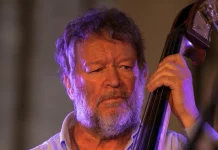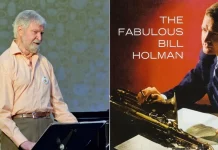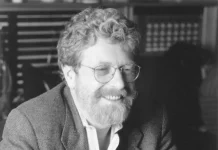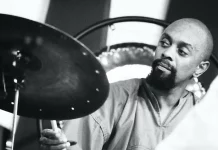Although Ethel Ennis had a long career it was not as glittering as her rich talent deserved. Indeed, after early prominence she drifted out of the national spotlight although she never stopped working. This was mainly in Baltimore but after some decades she made a very welcome return to wider attention.
She was born Ethel Llewellyn Ennis in Baltimore, Maryland, 28 November 1932. Her mother, Arrabell, played piano in church, her father, Andrew Sr, was a barber, and her brother, Andrew Jr, played clarinet and saxophone (and later spent time in Ray Charles’s band).
As a child Ennis showed early musical talent, playing piano in church and with a jazz band while attending high school. While in eighth grade at Frederick Douglass High she eagerly asked for Ella Fitzgerald’s autograph when the singer visited the school.
Although her grandmother had encouraged her to sing, she never did so in public but one night while playing with Abraham Riley’s Octet she was offered a $5 tip if she would sing the Lil Green classic “Romance in the Dark” (that was twice her weekly payment for gigs with the band). The audience loved the way she sang and although she was not yet 16 her future career was determined.
In the next few years while studying at business school she also worked extensively, often as a solo act, in Baltimore’s many clubs the venues ranging from strip joints to truckers’ rest stops. She was heard by George Fox, owner of The Red Fox, who hired her for a regular spot that she held until she was in her early 20s.
She made a handful of singles for Atlantic Records, and then her first LP, Lullabies for Losers, for Jubilee Records. This was in 1955 and two years later a deal with Capitol Records produced A Change of Scenery followed by Have You Forgotten. (In 2012 the Jubilee and both Capitol albums were reissued on one CD by Fresh Sound.)
In 1958 she visited Europe with Benny Goodman, including an appearance at the World’s Fair in Brussels. Excerpts from these concerts were later released although these mostly ignored her contribution, favouring instead the leader and fellow singer Jimmy Rushing. However, many years later Solar Records released a three-CD set, The Complete Benny in Brussels, and Ennis can be heard singing with striking confidence and maturity on 11 tracks.
In 1967 she married her second husband, Baltimore journalist Earl Arnett, although they had to marry in Colorado as Maryland’s laws prohibiting mixed-race marriages were still in force
During the following decade she appeared at the Newport Jazz Festival and also recorded four LPs for RCA Victor but was unhappy with how she and her music were treated. In the late 1960s and early 1970s she made several appearances on late-night television shows hosted by Johnny Carson, Mike Douglas and David Frost.
In 1967 she married her second husband, Baltimore journalist Earl Arnett, although they had to marry in Colorado as Maryland’s laws prohibiting mixed-race marriages were still in force.
Early in the following decade she recorded The Ten Sides of Ethel Ennis for BASF Records and in 1973 she sang a stirring a capella version of the national anthem at Richard Nixon’s second inauguration as president of the United States. She was a Democrat, but vice-president Spiro Agnew, formerly governor of Maryland, was a fan and invited her to sing at the ceremony.
These years were a time when pop dominated and less talented singers achieved popularity through astute promotion. Ennis narrowed her working horizons to her home town and it was there that for four years in the mid-1980s she and Arnett had their own club, Ethel’s Place.
In time, Ennis’s perseverance broke through the artificial barriers and she was heard at major venues, including the Kennedy Center for the Performing Arts. In 1994 she recorded Ethel Ennis for Hildner Productions and four years later If Women Ruled the World for Savoy Jazz Records. Her last recording, 2005’s Ennis Anyone? Ethel Ennis, Live at Montpelier for Jazzmount Records, was her second own-name live album, the first being 1980’s Ethel Ennis (Live at Maryland Inn) for EnE Records.
Stylistically, although Ennis liked R&B, in particular the singing of Nellie Lutcher, she chose not to sing the blues, perhaps influenced by her grandmother who had always urged her to be ladylike. Instead she concentrated on music from the great standards as well as jazz songs and R&B.
Her ballad singing presents her at her vocal best and she always performed with warmth and subtlety, eschewing unnecessary dramatics. Throughout her albums there is about her interpretations a sense of joy and she clearly loved her music.
Ethel Ennis died at home in Baltimore, 17 February 2019, when complications followed a stroke. She is survived by her husband, Earl Arnett, and her brother, Andrew Ennis Jr.
Anyone wishing to know more about this exceptionally talented singer should read Sallie Kravetz’s biography, Ethel Ennis: The Reluctant Jazz Star. There is also Pure Ethel, a long, engaging and quite rare interview from 2011 with John Lewis for baltimoremagazine.com















